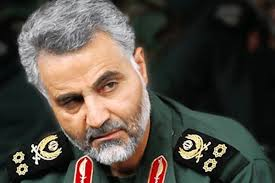Saudi Arabia’s Message to France
Salman Aldosary/Asharq Al Awsat
Thursday, 25 Jun, 2015/It is no secret that most of Saudi Arabia’s diplomatic stances towards the Middle East have been in tune with those of France. This is not to mention that Paris may be currently politically closer to Riyadh than any other European capital. A French official was quoted by Asharq Al-Awsat on Tuesday as describing the relations between the two countries as “a honeymoon.” Saudi Deputy Crown Prince Mohammed Bin Salman’s visit to Paris, which ends on Thursday, sends a highly significant political message to French circles that Saudi Arabia did not, and will not, take Paris’s firm positions on the key issues of the region for granted.
In fact, those positions strengthen Riyadh and Paris’s historic political alliance and create a military, economic and industrial partnership that would reflect positively on both countries. Three main points summarize Saudi–French relations in their new form: first, Saudi Arabia’s new leadership is seeking to open new horizons in its relations with Europe and raise their level from “close” to “strategic.” Even if Saudi–European ties were “very good,” why should they not become “excellent” in the near future?
Second, the French positions, which are very close to those of Saudi Arabia, form a solid ground and firm basis for strengthening bilateral ties even further. Perhaps the latest such position was French Foreign Minister Laurent Fabius’s initiative calling for a Palestinian state, which would share its capital Jerusalem with Israel, according to UN Security Council resolutions 242 and 336. Third, Saudi Arabia is heading towards economic integration with France, its historic ally. The Kingdom needs to strengthen economic ties with its allies, and France without doubt is at the forefront of the countries Saudi Arabia is keen to integrate with economically as well as politically.
On Wednesday, France 24 TV channel’s anchorwoman asked me about the price Saudi Arabia would pay for its rapprochement with France. My answer was that Saudi Arabia does not give “blank checks” to this or that country, nor does it deal in this old-fashioned and useless manner. Whenever Riyadh finds an economic partner that is capable of offering high-quality products which it needs, it definitely seeks to strike an alliance with them. Unless a deal is beneficial for both sides, it will fail sooner or later.
The French political circles understand and respect the Saudi policy of basing its strategies on long-term, permanent and stable relations rather than on temporary tactics. Perhaps the major deals the two sides signed on Wednesday confirm this policy given that they are not mere ink on paper, but rather viable deals that will bring benefit to both sides in equal measures.The regional and international climate is suitable for strengthening the strategic Saudi–French alliance that will in the future provide strategic clout leading to more powerful, joint stances towards the region’s main, long-suspended issues. Perhaps it is high time such alliances revived those regional issues.
Khamenei sacks Qassem Soleimani from command of the Syrian war
DEBKAfile Special Report June 24, 2015




















